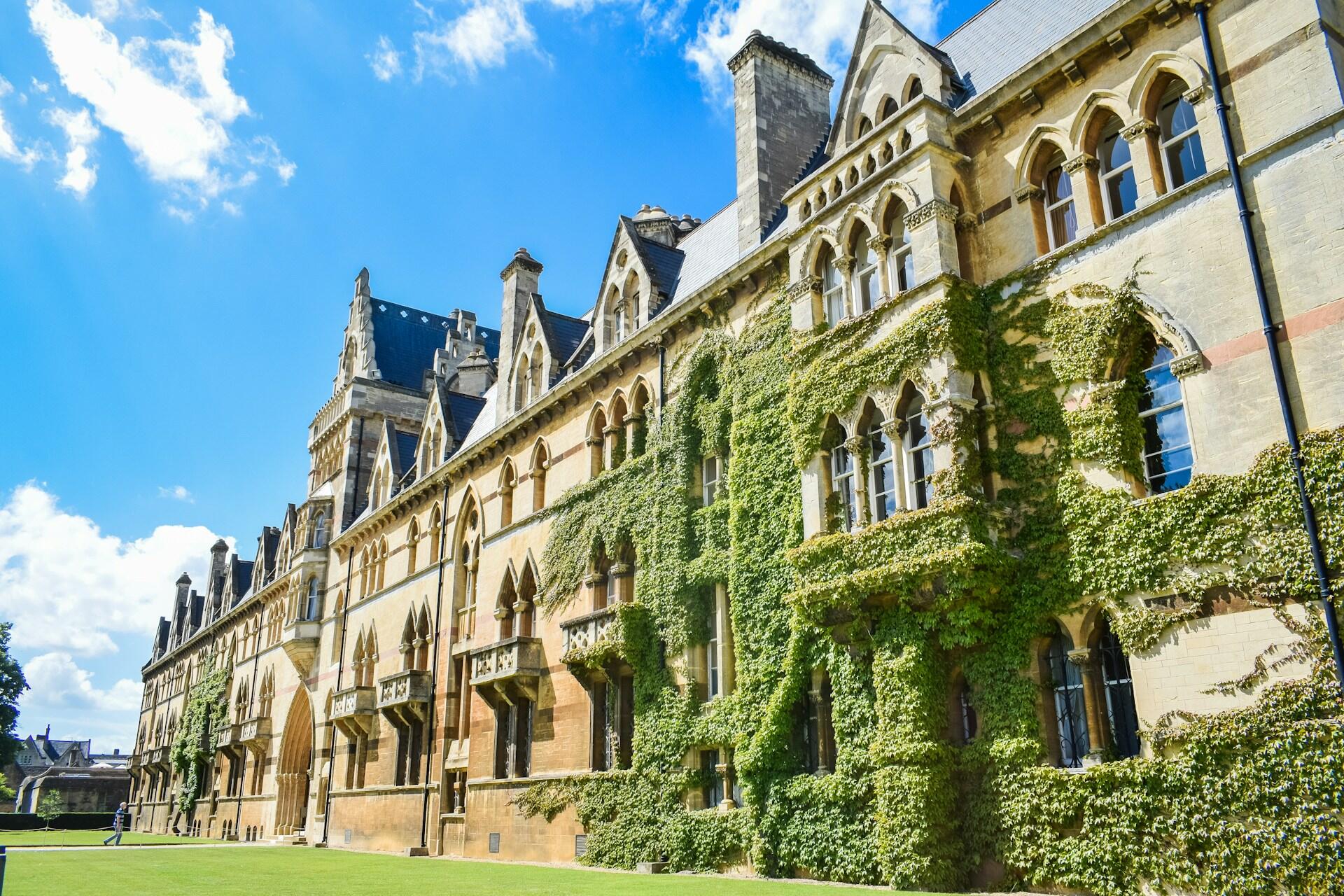When studying most subjects in the UK, the University of Oxford and the University of Cambridge are always at the top of the rankings. These universities are globally recognised and among the best, especially in business.
Let's compare the business education offered by both universities' business schools, including both undergraduate and postgraduate programmes, to help you decide which of these prestigious institutions will likely be right for you.
| Feature | Oxford Saïd Business School | Cambridge Judge Business School |
|---|---|---|
| Established | 1996 | 1990 |
| Accreditations | AMBA, EQUIS, AACSB (Triple Crown) | AMBA, EQUIS, AACSB (Triple Crown) |
| Undergraduate Programmes | BA in Economics and Management | None |
| MBA Programme Duration | 1 year, full-time | 1 year, full-time |
| Executive MBA Duration | 22-24 months, part-time | 20 months, part-time |
| Specialist Master's Degrees | MSc in Financial Economics, MSc in Major Programme Management | Master of Finance, MPhil in Management, MPhil in Technology Policy |
| Research Strengths | Finance, Leadership, Entrepreneurship | Entrepreneurship, Technology, Policy |
| Location | Oxford | Cambridge |

Oxford vs Cambridge – Studying Business at the UK’s Top Universities
Although the two universities are often mentioned together and even referred to as Oxbridge, they're not affiliated, though both are among the best places to study business in the UK.
The two are so old and widely respected that it's just as common to refer to them together as in isolation.
We'll be specifically looking at Oxford's Saïd Business School and Cambridge's Judge Business School today. Like the universities they belong to, they're incredibly prestigious.
At either, there are options like a highly selective MBA programme, postgraduate business degrees, executive education, and specialist research centres.
The key differences are the approaches to teaching, course structures, and the areas each business school focuses on.
Business Education at the University of Oxford
Oxford offers business education at Saïd Business School, established in 1996. Although this is one of the newer departments within the university (it's centuries-old), it's built a global reputation as one of the finest business schools in the world.
Though many choose to study business in London since it's the country's financial capital, Oxford's business school is easily one of the best in the country.

An Overview of Saïd Business School
Oxford University's intellectual legacy is combined with a forward-thinking business curriculum at the Business School.
Like any business school worth its salt, this one has strong ties to industries, policy-makers, and international organisations.
Its strengths in research lie in areas such as finance, innovation, entrepreneurship, and social impact.
It boasts the "triple crown" of accreditation (AMBA, EQUIS, and AACSB) and is regularly ranked among the finest institutions for business and management studies, which you can also get by studying business in Birmingham.
Undergraduate Programmes (e.g. Economics and Management)
The prestigious three-year BA (Hons) in Economics and Management is highly competitive. It combines analytical and theoretical economics with core management and business modules.
It's the only undergraduate business-related degree offered by the school.
MBA and Executive MBA
Regarding MBAs, the school offers two main options: the MBA and the Executive MBA.
- Oxford MBA (1 year, full-time): A globally ranked, intensive programme attracting professionals from diverse industries and backgrounds. The course includes core modules, electives, global opportunities, and a GOTO (Global Opportunities and Threats: Oxford) project.
- Executive MBA: Designed for experienced professionals, this part-time, 21-month programme focuses on strategic leadership, innovation, and real-world application. Modules are delivered in week-long blocks across global locations.
Specialist Master’s Degrees (e.g. Financial Economics, Major Programme Management)
Several specialist master's degrees are also available for professionals and early-career graduates who want to develop targeted skills in specific business areas.
These include:
- MSc in Financial Economics
- MSc in Major Programme Management
- Diplomas in Strategy and Innovation, Financial Strategy, and Organisational Leadership
Oxford’s Global Rankings, Reputation & Research
Oxford University is regularly one of the top-ranked universities in the world, and Saïd Business School is no exception. The MBA programme is one of the top 10 in the UK and around the world. The school is known for its excellence in finance, leadership, and entrepreneurship.

Beyond the school itself, there's the simple benefit of being at Oxford University and within the wider university ecosystem, which includes access to one of the world's largest academic libraries, global research centres, and a vast alumni network.
Check out the day in the life of an Oxford MBA student.

Business Education at the University of Cambridge
Business education is delivered through the Judge Business School at the University of Cambridge.
Much like the business school at Oxford University, the Judge Business School is relatively young compared to the broader institution, which was founded in 1990.
However, with the prestigious and ancient University of Cambridge behind it, the Judge Business School is just as prestigious and reputable.
This business school attracts a diverse international cohort of students each year, focusing on innovation, leadership, and global impact.
An Overview of Judge Business School
The Judge Business School is located in the centre of Cambridge and enjoys its close proximity to “Silicon Fen”, the UK's largest technology and innovation cluster.
Judge Business School has a reputation for interdisciplinary learning, finance, and entrepreneurship and has several specialist research centres.
Like its Oxford University counterpart, the Judge Business School is also triple-accredited (AMBA, EQUIS, AACSB), and its programmes are regularly ranked among the best on the planet.
Both Saïd Business School (Oxford) and Judge Business School (Cambridge) are part of an elite group of business schools worldwide that hold the Triple Crown Accreditation awarded by AMBA, EQUIS, and AACSB. Fewer than 1% of business schools globally have earned all three accreditations.
You can also find highly-ranked programmes if you choose to study business in Manchester.
Postgraduate Programmes
Cambridge does not offer an undergraduate business degree through its business school. Instead, it provides business education for postgraduate students with a range of programmes tailored to different learning and career outcomes:
- MBA (1 year, full-time): This programme brings together experienced professionals to develop strategic leadership and innovation skills. In the final term, students take core modules, electives, a global consulting project, and a concentration (specialisation).
- Executive MBA (20 months, part-time): Designed for senior professionals, this flexible programme allows students to balance work and study, with modules delivered over long weekends.
- Master of Finance (MFin): A full-time, one-year course tailored to those with prior experience in finance, focusing on real-world financial applications and leadership.
- MPhil in Management: A pre-experience programme ideal for recent graduates seeking a business career. It covers core management disciplines and offers a pathway to PhD study or further postgraduate work.
- MPhil in Technology Policy: An interdisciplinary programme that explores the intersection of innovation, technology, and business strategy, aimed at those working at the policy or executive level in technology-related sectors.
Executive Education and Custom Programmes
There's also a range of open-enrolment and custom executive education programmes at Judge Business School.
These are short, intensive courses that cover topics such as digital transformation, sustainable finance, leadership, and entrepreneurship.

Cambridge’s Global Rankings, Reputation & Research
Cambridge University often proudly ranks amongst the top 3 universities globally. In subject-specific rankings, particularly MBAs, Judge Business School performs strongly.
Its top strengths are its entrepreneurial environment and its emphasis on interdisciplinary collaboration. Like Oxford University, Cambridge University also boasts a vast global alumni network.
Cambridge is also a beautiful city and if your surroundings are important to you, you might want to think about studying business in Edinburgh.
Key Differences Between Oxford and Cambridge Business Schools
Both Oxford and Cambridge are excellent choices for studying business. Still, there are some differences that may be worth considering if you're looking for the best option specifically for you.
Undergraduate and Postgraduate Business Education
Oxford
Oxford offers a BA in Economics and Management as well as postgraduate programmes
Cambridge
Cambridge's Judge Business School focuses exclusively on postgraduate programmes
Academic Focus and Specialisation
Oxford
Oxford prioritises finance, leadership, and large-scale systems with strong interdisciplinary ties to politics, philosophy, and international development.
Cambridge
Cambridge tends to focus more on entrepreneurship, technology, and policy, particularly through its close links to the tech and innovation sectors locally.
MBA Structure
Both MBAs are one-year, full-time programmes, but:
Oxford
Oxford's MBA includes a distinctive project called GOTO (Global Opportunities and Threats: Oxford), which encourages students to tackle systemic global challenges.
Cambridge
Cambridge's MBA offers customised concentrations and a Global Consulting Project, allowing students to specialise in healthcare, entrepreneurship, or finance.
Executive Education
Oxford
Oxford tends to place more emphasis on modular diplomas for Executive MBAs.
Cambridge
Cambridge offers a broad range of short, innovation-driven executive courses.
Research and Innovation
Oxford
Cambridge has a strong reputation for entrepreneurship, innovation policy, and interdisciplinary research.
Cambridge
Oxford excels in leadership, finance, and ethics, with global centres for social entrepreneurship and economic development.
Admissions and Class Profile
The size of the MBA classes differs slightly between the two business schools.
Oxford
Oxford's MBA classes are typically larger but also include more nationalities.
Cambridge
Cambridge's MBA classes are smaller and tend to have more work experience.
Either way, both schools are excellent and being accepted onto a programme in either is a great achievement for any student.

Career Outcomes for Oxford and Cambridge Business Graduates
As with almost every Oxford or Cambridge graduate, career prospects are good for those who study at their business schools.
Alumni from either will benefit from the brand recognition and alumni networks that both universities have spent centuries cultivating.
Oxford Saïd Business School
- 91% of MBA graduates are employed within three months of graduation
- Top employers include McKinsey & Company, Amazon, Google, Bain & Company, and Goldman Sachs
- Many go on to work in London's financial services sector or with NGOs, governments, and international organisations.
Cambridge Judge Business School
- Around 92% of MBA graduates secure jobs within three months
- Top employers include BCG, Microsoft, Deloitte, J.P. Morgan, and HSBC
- Cambridge's Entrepreneurship Centre supports hundreds of start-ups annually, with many alumni continuing to work in high-growth ventures.















